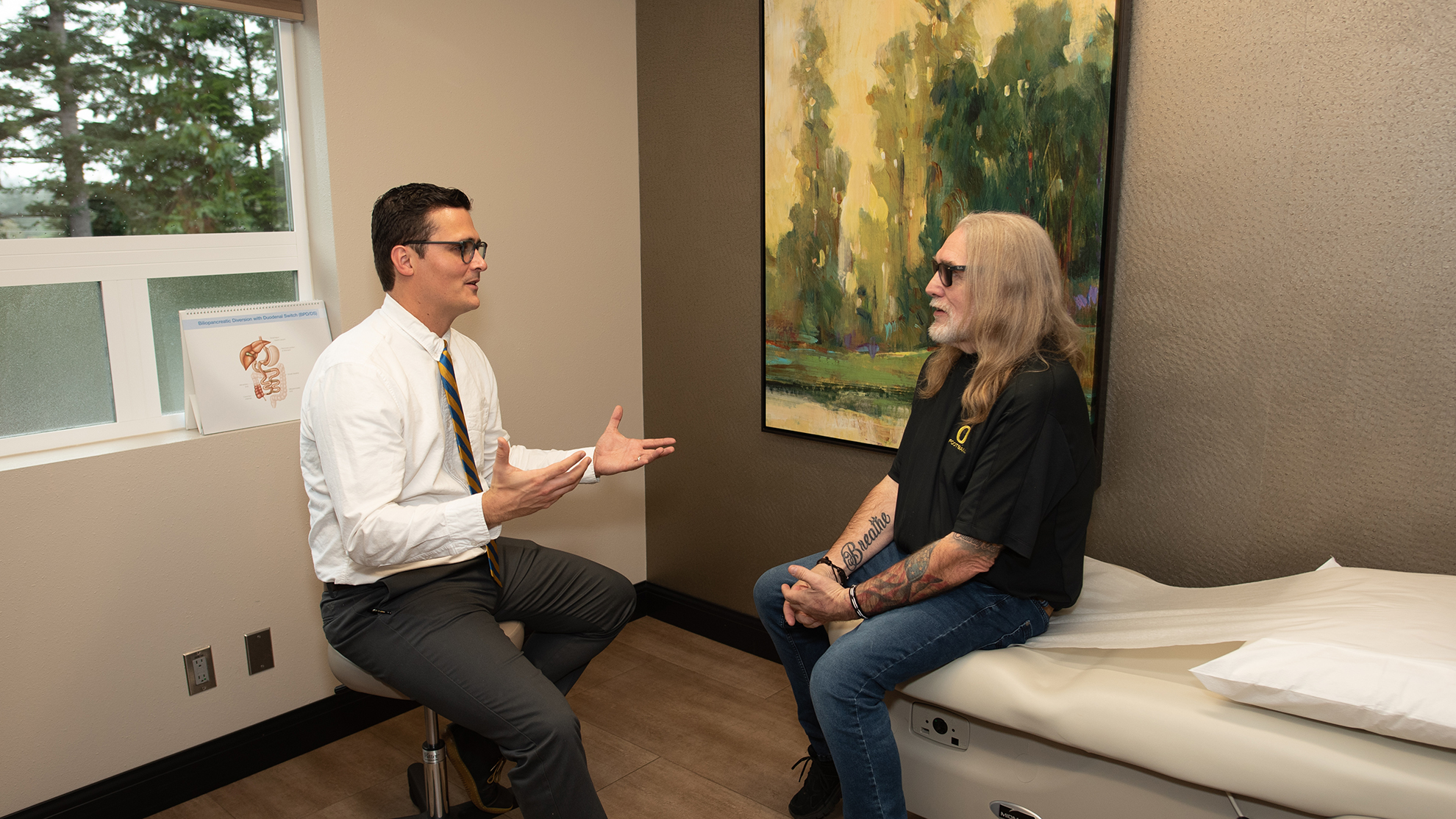What are the criteria for getting weight loss surgery?
BMI combines a person’s weight and height to determine whether or not they are the right weight for their height. A BMI calculator can help you calculate what your BMI is. Obesity is defined as a BMI greater than 30; morbid obesity is defined as a BMI of 40 or higher.
You must have a BMI of 35 to 40 and an obesity-related condition, or comorbidity, such as high blood pressure, diabetes, high cholesterol, osteoarthritis, or obstructive sleep apnea to qualify for bariatric surgery. Alternatively, if your BMI is over 40 and you have no comorbidities, you would qualify. It is also possible to qualify if you weigh more than 100 pounds over your ideal body weight. In addition, certain ethnic groups can qualify for bariatric surgery with lower BMIs. We would be happy to answer your questions and discuss if bariatric surgery is right for you. Give us a call and schedule an appointment to find out more.
Simply having a qualifying BMI alone does not necessarily make you a candidate for surgical weight loss, as there are other factors to consider. To determine if surgery is the right option for you, your surgeon will evaluate your medical history and complete a current health examination. The evaluation includes your prior attempts at weight loss. Bariatric surgery patients should be between the ages of 16 and 70 years old. If you have any questions about qualifying for metabolic and bariatric surgery, please call our office to schedule an appointment.
How much do you have to weigh to get weight loss surgery?
There is no exact weight that qualifies you for bariatric surgery. However, those who weigh more than 100 pounds over their ideal body weight could qualify. There are other criteria that help determine qualification for bariatric surgery, and weight alone is only one factor.
Who is not a candidate for weight loss surgery?
You may not be eligible for bariatric surgery even if you meet the BMI and comorbidity standards. Those who are pregnant or plan to become pregnant within a year are not good candidates for bariatric surgery. If you have substance abuse issues, eating disorders, or psychological illnesses, these must be addressed prior to surgery in order to have the greatest surgical outcome. A mental health professional can evaluate any mental health conditions and determine along with your bariatric surgeon if metabolic surgery is right for you.
Respiratory issues may also delay or cause a denial of surgery if they cannot be managed sufficiently. Blood clotting disorders, severe heart disease, and risk factors associated with anesthesia can also keep you from qualifying for bariatric surgery.
Additionally, if your BMI is greater than 60, you may be required to lose a certain amount of weight prior to surgery. Our goal in having bariatric surgery requirements is to ensure that your health is at its best so that complications are minimized, and you have the best surgical outcome.
Does insurance pay for weight loss surgery?
At this time, many personal insurance policies do not cover bariatric surgery. You should contact your insurance company to see what type of bariatric surgical procedures may be covered. Insurance coverage varies according to plan. If bariatric surgery is the best option for you, you can apply for a variety of financing options. Medically necessary operations due to risk factors such as sleep apnea or high blood pressure may also qualify you for a federal medical tax credit.
How much weight do you have to lose before gastric bypass surgery?
The amount of weight you need to lose prior to gastric bypass is determined by a number of factors, including your individual circumstances and health history. Most patients do not need to lose any weight to qualify for surgery. However, there are insurance plans that require 5-10% total body weight loss to cover the procedure. It’s critical to adhere to your surgeon’s pre-surgery dietary and nutritional recommendations for healthy weight loss so that you are medically ready for surgery.
What is the most effective weight loss program?
The most effective weight loss program is the one that you can commit to and adhere to consistently. Any effective weight loss program will involve lifestyle changes and a lifelong commitment. If you’ve lost weight on a program before only to find that you’ve gained weight months later, it is likely a combination of changes in your behavior and your body adjusting to your new diet. Our pre and post-surgery guidelines include health tips and nutritional guidance so that you do not have nutritional deficiencies. When you decide to have bariatric surgery, you are committing to lifestyle changes that will help you not only lose weight but also eliminate health problems.
What tests are done before bariatric surgery?
During your new patient visit, your surgeon will provide you with a list of tests that will be performed as part of your evaluation. Blood tests, medical imaging, and, in certain situations, basic procedures like an upper endoscopy are used to determine whether you’re a good candidate for surgery.

